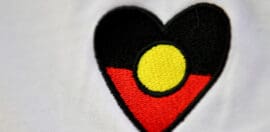Indigenous mental health falters under current system

9 December 2020 at 6:11 pm
A new study finds an overhaul of the health system is required if Indigenous Australians are to have better health outcomes
Suicide rates among Aboriginal and Torres Strait Islanders have jumped 49 per cent over the past decade, new research shows, prompting calls for a new approach to mental health.
Released on Tuesday, the Australian Institute Health and Welfare report is an update on the progress of Indigenous health in Australia.
The report found that while there were improvements in areas including reductions in avoidable deaths, cardiovascular disease and smoking, progress in many health outcomes such as mental health had stalled significantly.
Between 2006 and 2018, suicide increased by 49 per cent, and the hospitalisation rate for intentional self-harm increased by 120 per cent for Indigenous females and 81 per cent for Indigenous males.
Almost one in three Indigenous adults had high to very high levels of psychological distress in 2018-19, a similar proportion to 2014-15. In comparison, 13 per cent of non-Indigenous adults had high levels of psychological distress.
Major barriers to receiving healthcare included cost, and health services being unavailable, far away or with long wait times.
The update also revealed out-of-home-care and imprisonment rates had increased.
A new approach needed
The report noted the significance of the new National Agreement on Closing the Gap, which it said marked a shift in the approach to the Closing the Gap framework to one that gave Indigenous leaders and communities a seat at the decision-making table.
The report said a key theme from the research was the importance of culturally competent service delivery, and the need to partner with and share decision-making with Aboriginal and Torres Strait Islander people in the design of services and programs that affect them.
“New approaches are needed that acknowledge disempowerment, cultural losses, racism, and how the cumulative, stressful effect of entrenched poverty and disadvantage adversely affect Indigenous mental health,” the report said.
AIHW spokesperson Dr. Fadwa Al-Yaman said that achieving better outcomes required a whole of government approach.
“It’s about working in partnership with Aboriginal and Torres Strait Islander people,’ Al-Yaman said.
A full copy of the report can be found here.








